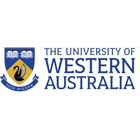Graduate Diploma in Law
Graduate Diploma in Law
This course is available to graduates with a recognised law degree who wish to pursue advanced or further study in law. This course is designed to equip practising lawyers and law graduates with an advanced understanding of the law to meet the challenges of the dynamic workplace. You’ll learn from…
Categories
COURSE DESCRIPTION
This course is available to graduates with a recognised law degree who wish to pursue advanced or further study in law.
This course is designed to equip practising lawyers and law graduates with an advanced understanding of the law to meet the challenges of the dynamic workplace. You’ll learn from world-class teaching staff and study with the next generation of leaders in legal practice, government, business and the not-for-profit sector.
Course structure
Postgraduate coursework degrees and combined (coursework and research) degrees comprise a number of units.
You’ll learn to
You’ll develop expert, specialised cognitive and technical legal skills, which will vary depending on your unit choices. This will allow you to independently:
analyse critically, reflect on and synthesise complex information, problems, concepts and theories as developed in seminars and through your independent research essays.
research and apply established theories to a body of knowledge or practice.
interpret and transmit knowledge, skills and ideas to specialist and non-specialist audiences.
Why study this course?
You can choose a specialised area or broaden your knowledge across a range of subjects including commercial law, government regulation, resources law, and a wide variety of public and private international law areas.
You’ll gain advanced reasoning skills, develop knowledge and research skills.
You can enhance and update your existing legal qualifications.
It’s all electives in law – you’ll choose all the units to take!
Graduate outcomes
Students will have an in-depth understanding of advanced complexities and challenges of a variety of legal topics. They will be able to adapt the degree to their own specialisation, given free choice to extend their basic legal knowledge in the subjects open to them, thus utilising the degree to tailor their specialised knowledge as they wish. All units will ensure that students will have learned independent study and research, as well as critical legal analysis. They will have worked independently on research essays and tasks, and gained working knowledge of legal method and legal research principles alongside their specialised legal knowledge.
Students will develop expert, specialised cognitive and technical legal skills, which will vary depending on their unit choices. This will allow them to independently:
analyse critically, reflect on and synthesise complex information, problems, concepts and theories as developed in seminars and through their independent research essays.
research and apply established theories to a body of knowledge or practice.
interpret and transmit knowledge, skills and ideas to specialist and non-specialist audiences.
Career Pathways
Expand your skills, expertise and knowledge of law to prepare yourself for the next step in your law career.
While many graduates continue their legal careers or take up a position as a lawyer, some use their qualifications to enhance their employment opportunities in areas across business, government and non-government organisations.
Further study opportunities
After completion of the Graduate Diploma in Law, you may wish to enrol in:
Master of Laws
Master of Public Policy
Master in International Law
Master of Taxation Law
Master of Mining and Energy Law
Master of Resources and International Commercial Law
REQUIREMENTS
To be considered for admission to this course an applicant must have—1(a) a Juris Doctor or Bachelor of Laws, or an equivalent qualification, as recognised by UWA; or 2(a) (i) a bachelor’s degree in a cognate area, or an equivalent qualification, as recognised by UWA; and (ii) the equivalent of a UWA weighted average mark of at least 50 per cent; or 3(a) (i) a bachelor’s degree, or an equivalent qualification, as recognised by UWA; and (ii) the equivalent of a UWA weighted average mark of at least 50 per cent; and (iii) at least two years of relevant professional experience.
English language requirements:
TOEFL (paper-based): 570 with a Test of Written English (TWE) of no less than 4.5
IBT TOEFL (Internet-based test score): 82 with 22 for writing, 20 for speaking, 20 for listening, and 18 for reading
IELTS (Academic): overall score of at least 7.0 and no band less than 6.5
Cambridge Certificate of Proficiency in English: C pass
Cambridge Certificate in Advanced English: B grade
Pearson Test of English (PTE) (Academic): Overall score of 64 with a minimum score of 64 in the Reading and Writing sections, 59 in the Speaking section and 54 in the Listening section
EDUCATIONAL INSTITUTION
The University of Western Australia (UWA) is a proud member of the Group of Eight and is the only university in Western Australia to be ranked in the world top 100 universities (QS World University Rankings 2023).UWA’s main campus is located in Perth, Western Australia and is home to more than 23,000 students. Perth is Australia’s fourth-largest city with over two million people from a variety of cultures worldwide, a strong economy and vibrant lifestyle. Perth is one of the country’s most affordable cities, the closest major Australian city to Asia, and in the same time zone as most of Asia.

